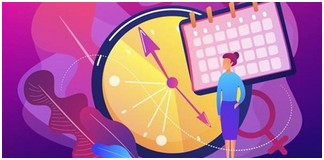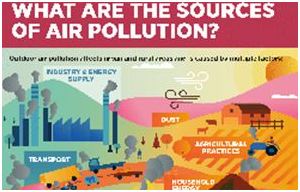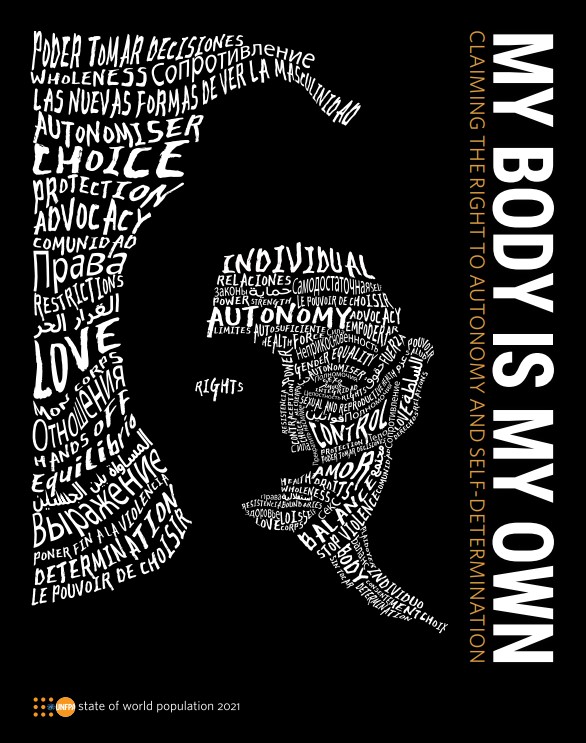Menopause – End the Taboo & The Silence
Извор: WUNRN – 23.02.2020

Menopause: The Taboo Topic We Need To Talk About
Between sexism and ageism, menopause gives rise to many stereotypes that have consequences for women’s private and professional lives.
By Marine Le Breton – HuffPost France
March 12, 2020 – About half of French women do not discuss menopause with their partner. That may be because 40% of women in the country consider it a “difficult” topic “which they don’t want to think about” themselves, according to a survey released late last year.
While the perception of menstruation is changing and the topic is becoming increasingly less of a taboo, it’s clear that the same cannot be said about menopause — which is not a disease, but a natural phenomenon when a woman’s period stops, generally around 50 years old. And menopause continues to contribute to women’s inequality.
Perceptions Of Femininity And Fertility
Although it’s a normal stage in women’s lives, menopause is rarely talked about in many circles and stigmatized when it is. It’s often associated with “a negative image, that of aging and the loss of ovarian functions, which affects femininity and fertility,” gynecologist and endocrinologist Anne Gompel told the news agency Agence France-Presse.
Women are frequently defined by their ability to have children, and menopause marks the end of their reproductive years ― in some people’s eyes, therefore, the end of them being women. This view is sexist since, obviously, women are much more than their reproductive abilities.
“As soon as women reach the ‘fatal’ milestone of the menopause, they leave the group of procreative women,” philosopher and feminist Camille Froidevaux-Metterie said in an interview with French outlet Terrafemina. “As a result, they lose what has always been considered their main social function … [and] they disappear as subjects.”
Ageism And Women’s ‘Shelf Life’
Along with this sexism, there is also pronounced ageism.
Menopause introduces “the idea of aging … being worse for women than it is for men,” Cécile Charlap, a sociologist who wrote a thesis on the social construction of menopause, said in an interview published by the National Center for Scientific Research. Men’s graying hair is valued, she said, but women’s bodies are “thought of from the point of view of fertility and highly valued aesthetic attributes”Her Stories challenging the status quo around the world.
“Growing old means losing social value for women,” she added.
Historically, menopausal women have been stigmatized and even excluded from certain circles because of their age and the end of their fertility.
“Postmenopausal women, whose behavior and speech were sometimes freer than before, became a scourge that had to be gotten rid of,” Mona Chollet wrote in her book “Witches, the Undefeated Power of Women.” She said there’s an “obsession with ‘shelf life’ which affects the whole existence of women” but not men.
Inequality At Work
Because of various stereotypes, women are perceived differently by society — including in the workplace.
“At 20, they are judged on their sexual and reproductive availability. Between 30 and 40, motherhood is perceived as a risk: Either they are not hired, or they encounter the first salary differences that they will never make up,” Marie Allibert, coordinator at Jump, an association campaigning for gender equality at work, told Madame Figaro magazine. “And at 50 — the so-called menopausal age — they are seen as unstable or argumentative either because they have pursued a career at the expense of their personal life or because, on the contrary, they were never promoted.”
Some women say their careers suffer as they go through menopause. Several women told The Guardian last year that they experienced anxiety, confusion or loss of confidence, which sometimes meant they needed to take time off from work or start working part time. Others said they were subjected to disciplinary measures after symptoms such as memory loss or lack of concentration affected their work performance.
About 94% of women surveyed by the English clinic Newson Health last year said their work had suffered as a result of their menopausal symptoms. More than half had to take sick leave.
Hot flashes, fatigue and irritability are among the many symptoms of menopause. It can also increase the risk of developing certain conditions such as osteoporosis or cardiovascular diseases.
Rachel Maclean, a member of British Parliament, said women in every company should be able to arrange their work hours to accommodate their symptoms.
“Employers need to do more. It is not well understood,” she told The Guardian. “Employees are not getting the support they need. It’s often very difficult for working women. My central message is: Menopause is the last taboo, because it is always hidden and only affects women, and it only affects older women. It’s ageism and sexism all rolled into one.”
https://www.huffpost.com/entry/menopause-taboo_n_5e6a88c0c5b6747ef11957f1?uo
https://womensenews.org/author/arianna-sholes-douglas/
Reasons to End Silence About Menopause

By: Arianna Sholes-Douglas | March 18, 2020
When Gwyneth Paltrow’s Netflix show Goop Lab debuted a few months ago, it garnered plenty of media hate for its pseudoscience and self-promotion. But there’s one important bright spot in the show we should all pay attention to: 90-year-old sex educator Betty Dobson offering advice on sensuality. She’s living proof that sex doesn’t end at menopause—and that’s just one of the powerful lessons our culture needs to learn about post-reproductive years. Our national silence on menopause has led to misdiagnoses, mistreatment and needless suffering for millions of women.
On average, women live for about 78 years—of that, only about 15 years fall in the peak reproductive period (25-40). Most women will spend far longer in the post-reproductive years. And many know almost nothing about what to expect when those years end. We are ignorant because of chronic misinformation and silence. Our mothers did not typically have the tools to help guide us themselves. When I have surveyed women over the years in my practice less than 5% report That their mother or another significant female figure shared information about the menopausal years.
This shouldn’t be surprising: For most of the 19th and 20th century, women’s body’s and health needs were regarded as less important than men’s. As researchers at the Brigham and Women’s Hospital reported in 2014, “The science that informs medicine—including the prevention, diagnosis and treatment of disease—routinely fails to consider the crucial impact of sex and gender”
As a gynecologist and author of a book on menopause, I’ve been astounded at the mistreatment of women that results from our culture’s silence on menopause. Just a few examples: Recently, a new 67-year-old patient came to me for severe vaginal dryness and pain with intercourse. She had been seen by at least two other medical providers. One told her she should simply expect her sex life to suffer as she ages. That’s ridiculous. Many therapies are available for dryness and pain, either over the counter or by prescription. Another doctor offered her anti-depressants and sleeping pills. She needed a doctor who understood menopause. I prescribed a combination of vaginal hormone therapy and CO2 laser tissue rejuvenation. Three months later, she could resume sexual relations with her husband and they now report intercourse twice weekly. It has changed their marriage.
I see this all the time. Women frequently hear that painful intercourse after menopause is all in their head, not an actual medical condition that can be treated
This is true of other symptoms related to menopause as well. A fifty year old women with newly diagnosed anxiety and heart palpitations is likely to get a psychiatric and cardiology workup, despite the fact that she is experiencing some of the most typical symptoms of estrogen imbalance.
Even me—a 53-year-old gynecologist! I was so steeped in traditional (male) approaches and mindsets in medicine, that when I started feeling irritable, depressed,, had difficulty sleeping and experienced night sweats, I complete overlooked the fact that I was entering perimenopause, the one-to -eight year period preceding menopause. Once I realized what was happening I treated my symptoms through integrative approach. I changed my diet, focused on self-care, and eventually started hormone replacement therapy.
But more importantly, I realized that I was not going crazy. Within weeks I was feeling better but it was a long journey to begin to understand how my body was actually changing. I realize that if a gynecologist could be this confused about this period in her life, what must the average woman experience?
Some of this comes from the same shame and silence that has historically surrounded the female body—but it’s even worse for menopause than other conditions. Every woman knows where to turn if she is contemplating motherhood—sisters, girlfriends, best friends, obstetricians, and thousands and thousands of books. . Yet, of the hundreds of women I’ve talked to about menopause, less than 10% have told me that there were women (or sometimes men) in their lives who described menopause, what it was, or what to expect. With a lack of intergenerational conversations, we will always lack understanding of the unique experiences of women entering this transition.
While the Goop Lab may not survive its savage reviews, I fervently hope that the show’s willingness to explore taboo subjects—including menopause—continues. But fortunately, we don’t have to depend on Netflix and Paltrow to continue that movement.
Women can change the narrative right now, by starting the conversation with their mothers, sisters, daughters, and yes, even their doctors. Transparent, evidence-based, unbiased healthcare should be the standard of care delivered by our health care professionals not only during a women’s reproductive years but also in the decades that follow.
About the author: Arianna Sholes-Douglas is an OB-GYN and author of The Menopause Myth: What Your Mother, Doctor, And Friends Haven’t Shared About Life After 35



